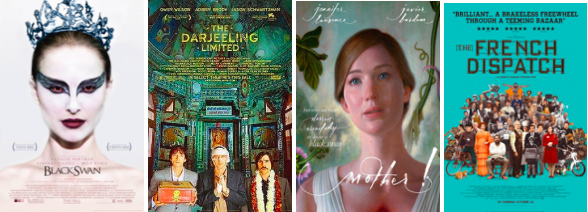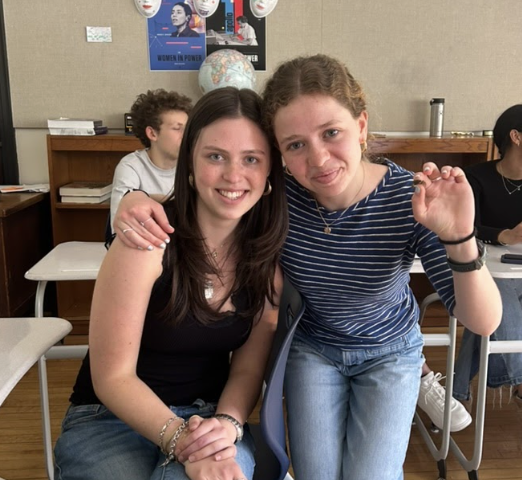The relationship between director and film editor is a sacred one. This comes with a responsibility that consists of the director entrusting the editor to realize their vision, and make the efforts of all actors shine. Some of the more notable of these relationships include Thelma Schoonmaker and Martin Scorsese; Michael Kahn and Steven Spielberg; Sylvia Ingemarsson and Ingmar Bergman. Fieldston alumni Andrew Weisblum ‘90 is an Academy Award nominated professional film editor, who has cultivated such a relationship himself, two-fold, working predominantly with directors Darren Aronofksy and Wes Anderson since 2007. Weisblum started working with Aronofsky as the visual effects editor on The Fountain (2006) and has since edited The Wrestler (2008), Noah (2014), Mother! (2017) and was nominated for the Academy Award for his editorial work in Black Swan (2010). His work with Anderson includes The Darjeeling Limited (2007), Fantastic Mr. Fox (2009), Moonrise Kingdom (2012), Isle of Dogs (2018) and The French Dispatch (2021). (He is also a Fieldston parent).
I was fortunate enough to sit down with Weisblum and discuss his work.
Sophia Gutierrez: To start things off, please tell me a little bit about yourself. How did you get your start in film?
Andrew Weisblum: I’ve been working in film editing primarily in New York for over 25 years, mostly with film directors like Darren Aronofsky and Wes Anderson. I was always a movie freak as a kid. I wasn’t sure exactly what I was going to do in movies, but I knew I always wanted to and would do something in the industry. I made short films on my own that I liked editing the most. Before I got to be a professional film editor I knew I needed to get my foot in the door, so I sought out a series of internships, directors assistant and editors assistant Jobs. Coincidentally one of the first films I worked on was directed by Joe Algrants’ brother, Daniel – Joe, who’s going to be the new head of school. He did a movie that was produced by Scorsese, and I worked as an assistant to him during the shoot. Around this time, at the start of my career, I met an editor named Bill Pankow, who I worked with as an assistant editor. This was really my breakthrough, I was able to work with him on several films and he gave me the opportunity to gain entry into the New York City editorial world working for him. The NYC post production world is an insular circuit, once you’re in, you’re in, and it’s very easy to stay inside as opposed to the sizable post production world of L.A.
SG: As you said earlier, you’ve had the opportunity to work with major directors in your career. How strong of a collaboration process has there been between you and the directors you’ve worked with in the past?
AW: It honestly depends on the director. Some directors can’t stand to look at stuff that they haven’t put together themselves, whereas some like to see it through another’s eyes. Luckily, I’ve never had an experience where I’ve felt like it’s uncollaborative. With Wes, a lot of the ideas are laid out in advance. The first assembly of the footage comes from what’s been laid out in the storyboard, it’s from there that things will get experimented with or changed. We get the idea that’s in his head out first, then we play around with it in the cutting room, that includes me. With Darren, we don’t discuss that much while we’re shooting, but he’ll check in from time to time and ask me to send him a cut of the material. He wants to see my take on the material, and if he likes what I did or he did, then we can redirect from there. The editing process is all an access point in for the director, and ultimately whatever works for them works for me.
SG: What were some of the biggest challenges you’ve faced working on a film? What have been some highlights? Does a specific project come to mind?
AW: All projects have different challenges. Some are budgetary or political, who’s involved in the filmmaking process is a component, someone may be working at odds with that filmmaking process because of these reasons. For me it’s never been the creative challenges, but rather trying to manage these other factors. The films that are being worked on the longest are the most challenging for me. You have to hold on to the original intentions as well as the organic integrity and material of the film. After multiple years of shooting and editing, you get bored with the project, and it’s easy to lose sight of those original intentions. At that point, I’m just reassembling the puzzle pieces in the cutting room. The most rewarding and exciting moments of my career were working on Darjeeling. It was my first major film and my first time editing for Wes. There was not a lot of pressure and stress, it was a lot of fun and we were really just enjoying the material of that film.
SG: You’ve mostly worked with Wes Anderson and Darren Aronofsky which leads me to assume that you’re drawn to their respective film styles. What is unique about editing their films in comparison to others?
AW: The kind of films they make hold a particular stature, they are very signature and autonomous directors in the way they make their films. They are not beholden to others like other directors are. The films they make are very much their own, they are independently motivated and minded, film directors that are not for hire just to do a job if you will. They’re there because they’re truly motivated by the craft and content matter. Different directors are more willing to capitulate or address a note even if they don’t agree with it because they have less creative direction. They have less say because they’re beholden to some external factor and are impotent in the whole project. Ultimately, I need someone making the decisions, which should be the director. I need creative and intentional choices, not an unsure mismatch, and I look to the director for that.
SG: Wes Anderson’s new film The French Dispatch recently premiered in theaters. Can you talk to me a little bit about some experimentation you did in this movie in comparison to other movies you’ve worked on with Anderson? Also the decision making process that led you to make certain editorial decisions?
AW: In terms of experimenting in French Dispatch, a lot of it has to do with design tweaks, color tweaks, adjustments in timing between the different characters within a shot, as well as adding or changing basically everything you see in the frame. It wasn’t completely clear what was going to be in color or what was going to be in black and white. It also wasn’t clear if the last story was going to be completely in color. However we ended loving the way the black and white was looking so we decided to lean more into the black and white more for contrast effect reasons. We strived to make these choices in post production. We also experimented with graphic elements, playing around with text on the screen and how to mimic magazine styles. In terms of just general editing, a lot of what he does is planned out. Editorially in this movie, Rosenthaler’s story was very planned out even though we made changes later on in post production. Whereas Zefferelli almost had no story boards, and that really gave us the opportunity to play with it structurally. We also got to do a lot of graphic and stylistic experimenting, even manipulating production. In Howitzer’s office we changed the colors of the transom windows vs. the colors of the floors, added a mat to the floor, changed a wall of photos to a map- and so on. All of this was to maximize the potential and design in each shot or frame.
SG: What new projects are you looking towards in the future? Do you currently have anything in the works?
AW: The movie that I most recently worked on is called Tick, Tick…Boom!(Lin-Manuel Miranda’s directorial debut), and I am currently working on another movie called The Whale with Darren. When that’s done, I’ll be working with Wes again on his next project, which he’s already begun shooting.







I enjoyed reading Sophia Gutierrez’s article on Andrew Weisblum.
Andrew was very enlightening regarding his background experience and development of his craft. I have seen most of his films and appreciate his talent.
Sophia’s questions are spot on and helped to understand the the truly significant role of the film editor.
Andy I has just been nominated for an Editing Oscar for Tick, Tick Boom!, and for ACE Eddie awards for both Tick, Tick Boom, and the French Dispatch. He also edited The Eyes of Tammy Faye, with Jessica Chastain who is nominated.as Best Actress.